With Her Debut Feature ‘Janet Planet,’ Annie Baker Fractures a Girl’s Love for Her Hippie Mother— and Takes ‘Maniacal Pleasure’ in the Slow Burn
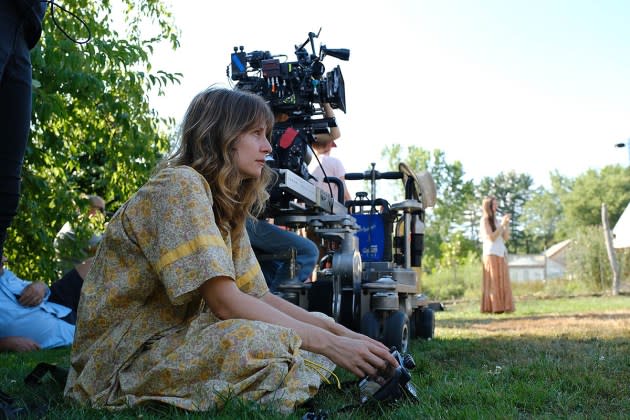
It’s always been about timing for Annie Baker. In her author’s note for her second produced play “Circle Mirror Transformation,” she lays down the law on how to accurately perform the silences as she’s written them: A “short pause” is one second, a “pause” is two, a “long pause” is closer to four and a “silence” is at least five.
“If you skip over or rush through these silences, you are performing a different play,” Baker writes in the note, published in 2010.
More from Variety
Now 14 years and seven plays later, the Pulitzer-winner has moved from the stage to cinema with her debut feature “Janet Planet,” which follows a single mother, Janet (Julianne Nicholson), and her doting 11-year-old daughter, Lacy (Zoe Ziegler), whose affections for her parent are reaching a quiet but definitive breaking point. Expanding its limited release from A24 this weekend after a New York opening, the film provides a fresh, new landscape for Baker’s signature mastery of the loose rhythms of small talk and agonizing, emotionally evocative silences.
“It was actually pure maniacal pleasure being able to control…” (A short pause.) “…the rhythm…” (A pause.) “…of a performance, six months after it happened,” Baker says in a Zoom interview. “Sometimes Julianne would text me and be like, ‘We haven’t talked in four months.’ And I’d be like, ‘I’m hanging out with you.’”
“I’m so sick of your face!” Nicholson jokingly impersonates, seated next to Baker at the A24 offices in New York.
“No!” Baker smiles. “It did fulfill a desire I’ve had for a long time to really sink my claws into the timing of a performance.”
Nicholson and Ziegler venture into pregnant pauses aplenty in “Janet Planet.” The film begins with Lacy making a call in the dead of night, demanding Janet come pick her up from sleep-away camp. It’s a sudden homecoming that the mother hasn’t appropriately accounted for. As a carousel of Janet’s dubious romantic partners and troubled house guests enter her orbit, the onslaught of awkward experiences casts a curious shadow over Lacy, who can only bear witness to her mother’s private life as she is thoughtlessly included in it.
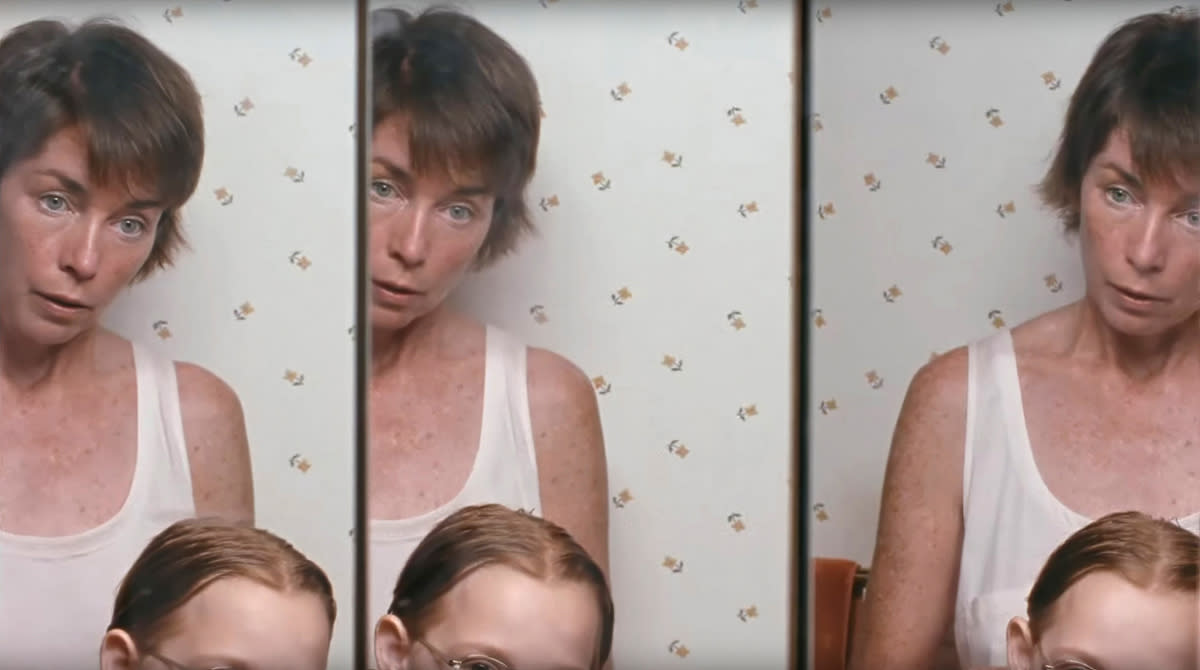
As common industry logic goes, one page of a screenplay usually amounts to roughly a minute of runtime. To compare, the original “Janet Planet” script was 70 pages, with roughly 50 pages in the final cut; the runtime is nearly two hours, leaving the audience to sit with Lacy in the full expanse of her inarticulable discomfort.
“And I have a new script that I finished recently that’s 67 pages. I know it’s at least 95 minutes long,” Baker says. “But I’m starting to show it to people and people are like, ‘Is 67 minutes a long enough movie?’ I don’t know how to convince people that it is a very long movie.”
Baker’s aware that her writing has a rhythm all its own. To that point, she seems to physically recoil when asked if she would consider directing a film written by somebody else.
“I can’t imagine directing something I didn’t write,” Baker says. “Unless, it’s directing some really trippy music videos — I actually would be very interested in directing someone else’s material if it were a song. But I don’t want to direct anyone else’s dialogue.”
But beyond the tempo, “Janet Planet” comes with an even more definitive personal investment for Baker. The story is set in ’90s Western Massachusetts, the region where both the filmmaker and Nicholson were raised. The pair were keen to return there for the production. Subtle glimpses of Lacy’s day-to-day, like her long forest-side trudges to passionless piano lessons and her mother’s hippie lifestyle flair, bring a specificity to the film that furthers a sense of privacy around its characters.
“I was familiar with that world of people looking to find connections and going about that through what was then considered an alternative lifestyle: acupuncture, homeopathy, chiropractors. It was all still sort of just being discovered,” Nicholson says. “It was hugely personal to be able to go back to these places. I have more clear memories of when I was eight, nine, 10, 11 years old, than I do, like, five years ago. And I wouldn’t have gone back otherwise. I don’t know that I would’ve had a reason.”
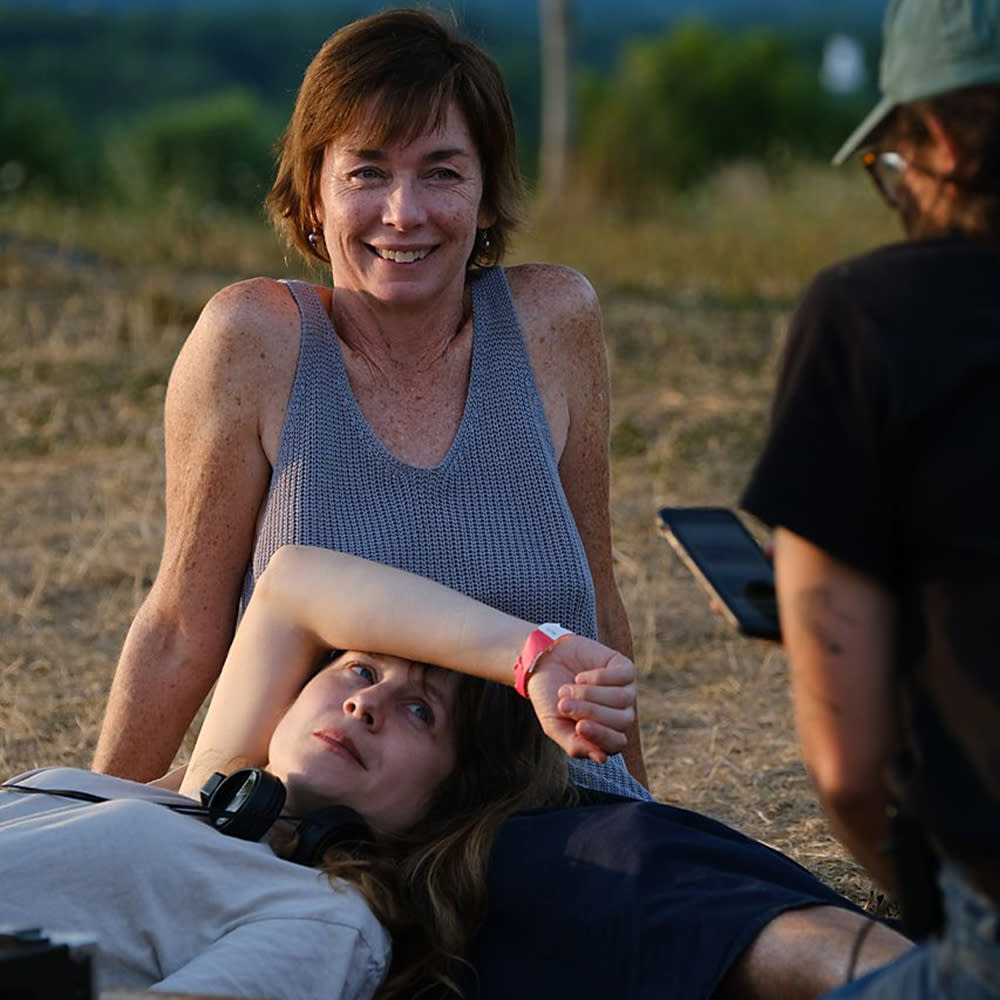
The regional precision also enlivens the film’s portrait of an inevitable, but formative childhood experience: the dawning realization that a parent isn’t a deity, but instead a flawed individual occupying a world outside their control. That arc is part and parcel to Baker’s premise of having Lacy present in some way for every scene in the film; even when Janet forgets her own daughter is in the same room, some playful framing always re-centers Lacy’s perspective.
“I have this with my kid sometimes too. I start talking to a friend and I’m like, ‘Oh my god, right. My child has been listening to this conversation,” Baker says.
At this point in the interview, Ziegler gives a small shuffle in her seat between Baker and Nicholson. The child actor has been present for this entire conversation too, though her director and co-star are very consciously accommodating of her —much more consistent at it than Janet is for Lacy. Quiet as a mouse in a press setting, Ziegler still volunteers an answer when asked about whether she’s continued acting since filming “Janet Planet” two years ago.
“After I did a movie called ‘Howl.’ Directed by Sara Crow,” Ziegler says. “It’s a short film.”
Nicholson turns and asks, “Did it feel similar to when we were filming?”
“A little bit yeah.”
“We watched the movie together for the first time at the New York Film Festival.”
“You were really happy,” Baker adds.
“Yeah,” says Ziegler. “It’s cool.”
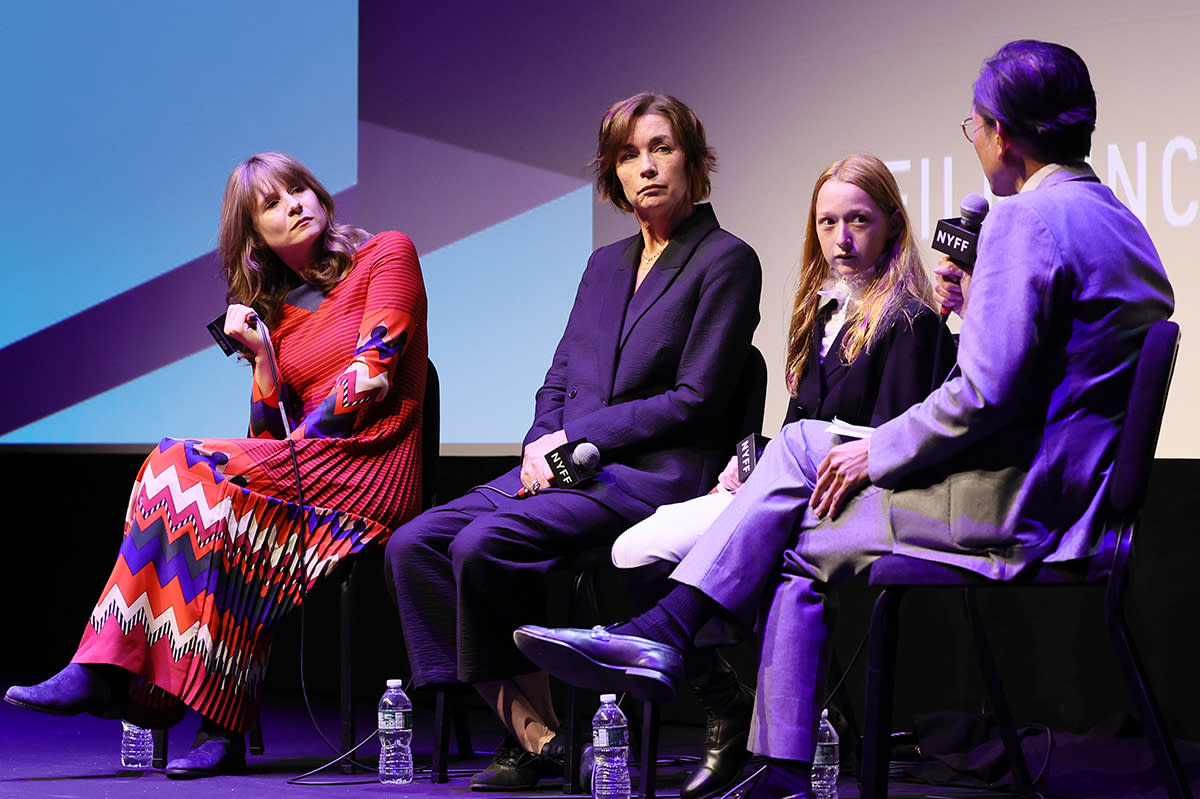
The journey to casting Ziegler was a long one for Baker, who recalls discovering the first-time actor with seismic gratitude.
“You feel Zoe’s intelligence immediately upon meeting her. I’m going to just embarrass her,” Baker says, turning to Ziegler apologetically. “It’s a nightmare to be 12 and be described in front of your face like this.”
“Annie was out there, combing the streets and the fairs and the schools and the mall,” Nicholson says, “She was, for a year, working any and every avenue, from professional actors to approaching people on the street. … And I read with a couple of professional young actors, who were great but who weren’t Lacy.”
“It’s really scary when you’re casting a movie that starts shooting in six months, and then four months, and then two months, and then one month, to keep saying no,” Baker says. “And then, man, you really don’t know until the first day of shooting if you cast the right kid. But then it was in the first five minutes: I was like, ‘Phew! We have a movie!’”
Beyond Nicholson’s numerous readings with young actors, Baker also credits her star as a shepherd for the film throughout production.
“It was actually so helpful to have you along for the ride and to be able to check in with you periodically about many things and many hires. We gut-checked each other a couple of times,” Baker says, talking to Nicholson. “We were recording some wild sound in a van and you were like, ‘You might want to try doing it this way.’ And I was like, ‘Oh my God, she’s great.’ Julianne is actually very, very smart about filmmaking.”
Chirping bugs and cawing birds and summer breezes blanket the soundscape of “Janet Planet.” While the characters are often silent, the movie hardly ever is. Baker was intent on having no musical score from the early stages of development. Instead, the production taped hours upon hours of field recordings, mixing the natural summer sounds of Western Massachusetts for a transportive sonic spell.
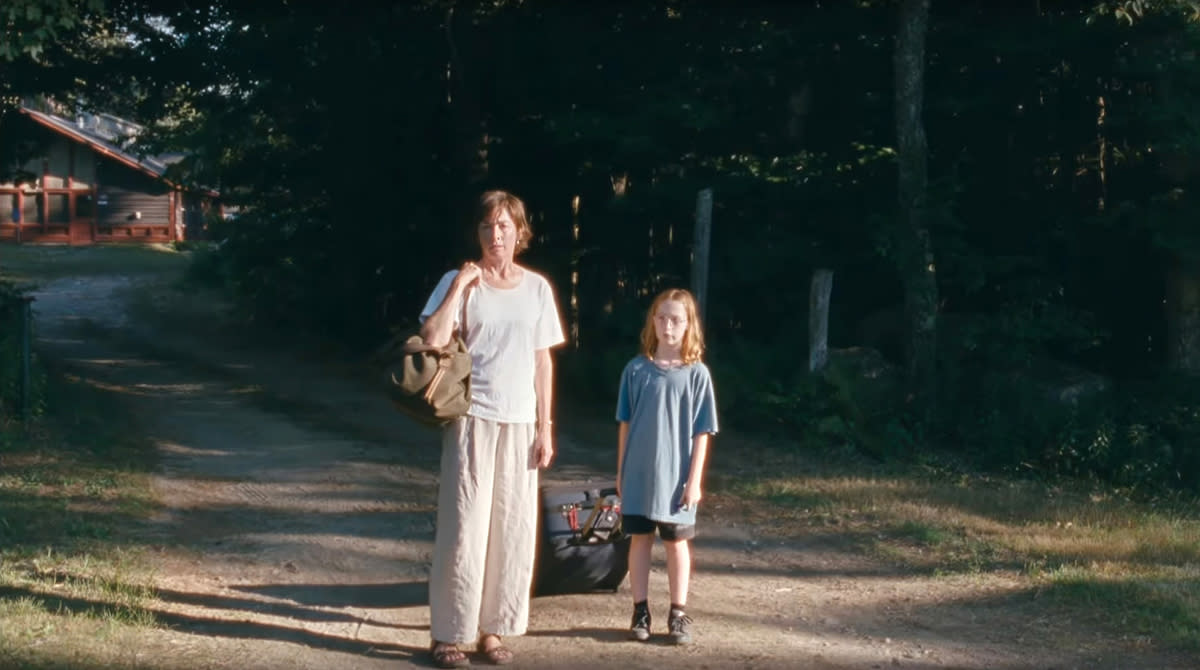
“What does this driveway sound like if you’re walking to the mailbox at 5 a.m.? It’s always better than what we could come up with,” Baker says. “If there was a score, it was what this kid is hearing in her life, whether it’s overheard conversation or the music her mother’s playing when she’s high or the bugs outside her window. … Whoever my sound designer was would be the composer. It was going to be quite extreme.”
And as with her audio, Baker also discovered it was best to spoil herself with material while working with her actors too. Given the rare opportunity to direct her own writing, the first-time director quickly learned that it was best to never settle on one particular interpretation of a scene with her actors, instead pushing for a mode of perpetual experimentation unique to film production.
“With theater, I’m seeing it happen in front of me and that’s what it’s going to be like on stage. The great thing about moviemaking — and the humbling thing — is you actually have no idea how slow or fast you want it to be until you’re in the edit. Nobody knows. Like, nobody knows!” Baker says. “Sometimes, I was like, ‘Well thank god we have a really fast take’ — I mean, ‘fast’ for me is a different thing than it is for other people. … The best thing you can do is play and let the actors play. And then, be the maniac later.”
Best of Variety
'Blue Velvet,' 'Chinatown' and 'Fear and Loathing in Las Vegas' Arrive on 4K in June
'House of the Dragon': Every Character and What You Need to Know About the 'Game of Thrones' Prequel
Sign up for Variety’s Newsletter. For the latest news, follow us on Facebook, Twitter, and Instagram.
